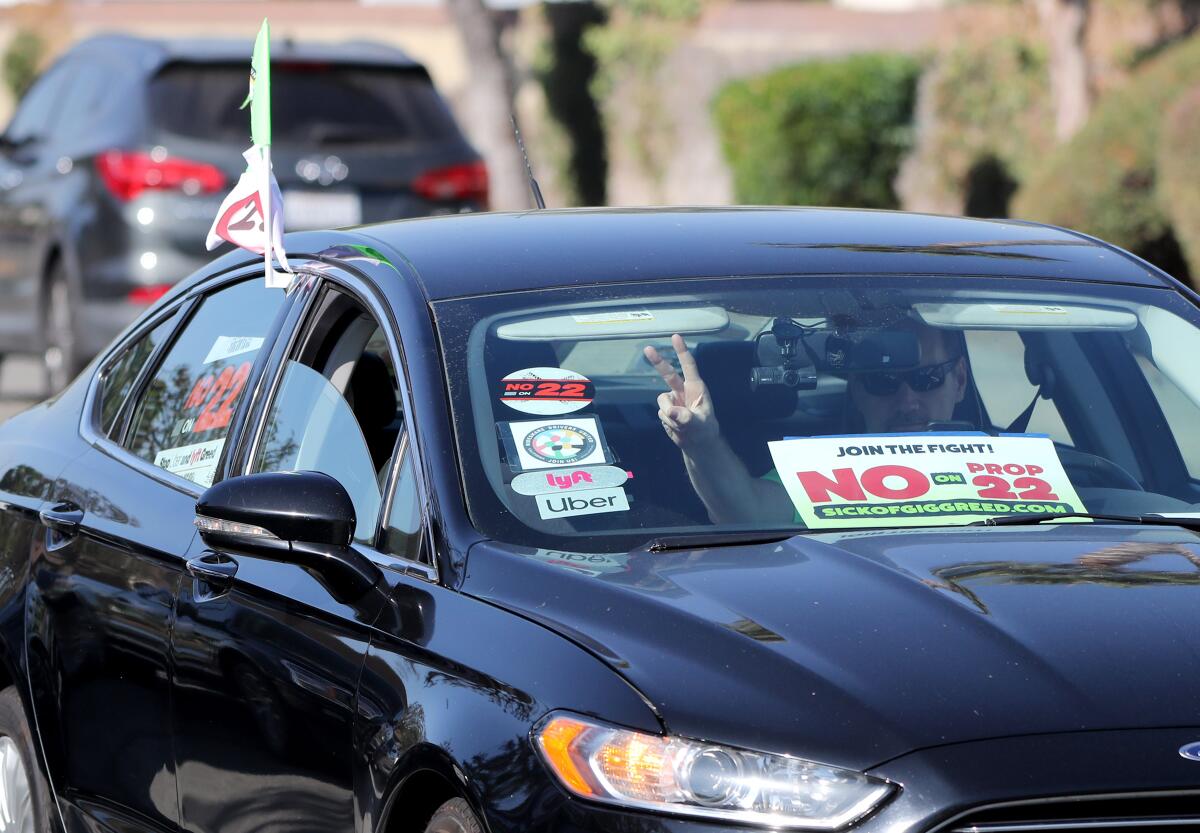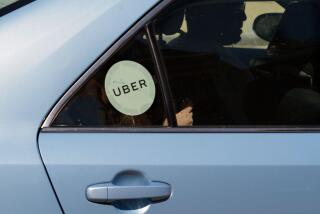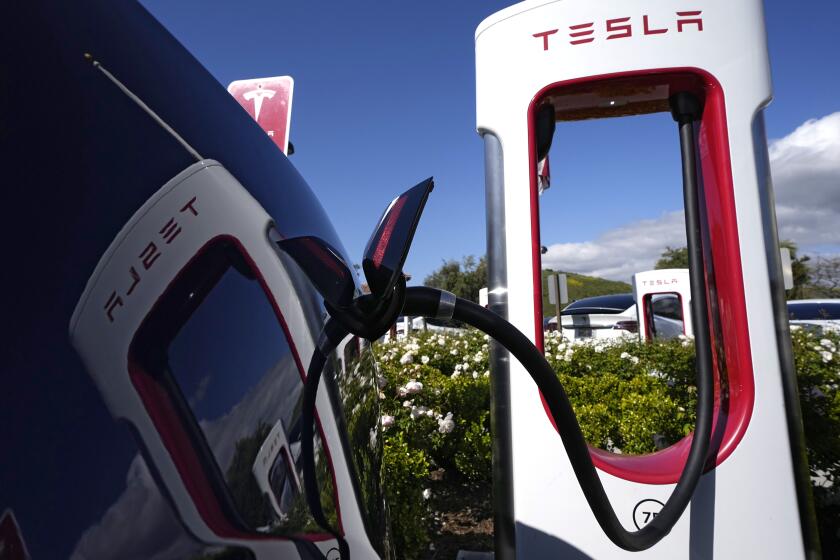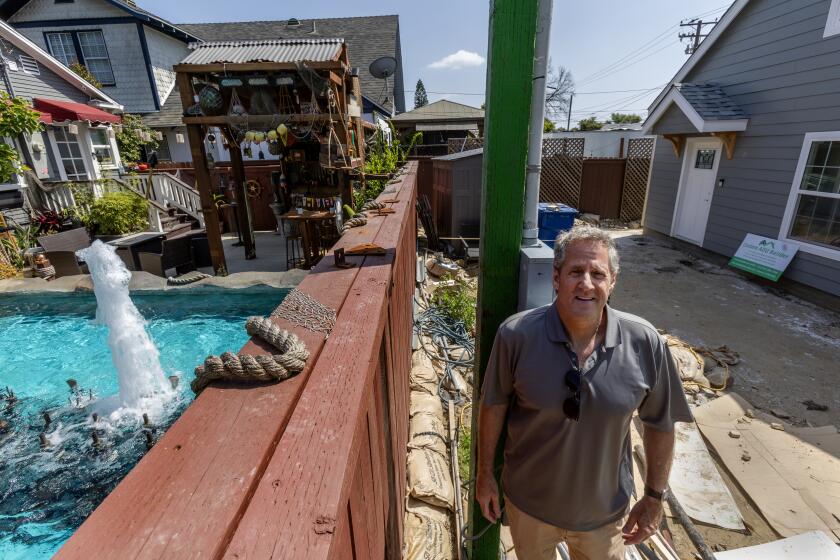Prop. 22: Everything you need to know about app-based economy measure

Proposition 22 asks voters to create a unique designation under state employment law for drivers who work for app-based companies, allowing them to remain independent contractors but also providing a set level of employment benefits.
Here is a quick guide to the proposition, which has set a new national record for ballot measure spending:
The details
At the center of this debate is the employment status of people who work for app-based businesses like Uber and Lyft.
A California Supreme Court ruling in 2018 imposed a strict test to decide whether self-employed workers should be considered employees. Past state audits found at least a half-million workers in a variety of industries were misclassified as independent contractors, resulting in an estimated loss of $7 billion in state payroll taxes.
An independent contractor, the justices wrote, must be a worker free from control and direction when carrying out tasks; must be someone who conducts duties outside of the usual course of the company’s activities; and must generally perform what the ruling described as “an independently established trade, occupation or business.”
The court ruling presented a significant challenge to the ride-hailing and delivery companies, whose drivers have always been identified as independent contractors.
The ballot measure would require the companies to provide an hourly wage for time spent driving equal to 120% of either a local or statewide minimum wage. It would not pay drivers for the time they spend waiting for an assignment. It also requires that drivers receive a stipend for purchasing health insurance coverage when driving time averages at least 15 hours a week, a stipend that grows larger if average driving time rises to 25 hours a week.
If the ballot measure is rejected by voters, drivers for the companies would almost certainly be required to be classified as employees and be provided a wider array of more generous benefits.
Backers — led by big app firms — say drivers want Proposition 22. Opponents say not all drivers share that sentiment. They have accused the companies of using the employment status of drivers to divert attention away from the effort to maximize profits.
State of the race
A UC Berkeley Institute of Governmental Studies poll of likely voters last week found 46% said they would vote in favor of Proposition 22, while 42% would vote against it. The number of undecided voters fell by 13 percentage points since Berkeley’s mid-September poll as support and opposition grew in roughly equal amounts.
An eye-popping total of almost $220 million has been raised by both sides. The “yes” side’s money-raising has dwarfed the opposition’s — $199 million to about $20 million as of late October.
Reading list
In Prop. 22, app-based companies ask voters to resolve what lawmakers would not
Uber, Lyft, DoorDash workers on Prop. 22: ‘I don’t want to end up on the wrong side’
What Prop. 22’s defeat would mean for Uber and Lyft — and drivers
It’s no wonder hundreds of millions have been spent on Prop. 22. A lot is at stake
In Proposition 22’s battle between the old economy and the new, taxi drivers look for hope
Uber, Lyft push Prop. 22 message where you can’t escape it: your phone
Uber and Lyft just made their campaign to keep exploiting workers the costliest in history
More to Read
Start your day right
Sign up for Essential California for news, features and recommendations from the L.A. Times and beyond in your inbox six days a week.
You may occasionally receive promotional content from the Los Angeles Times.






